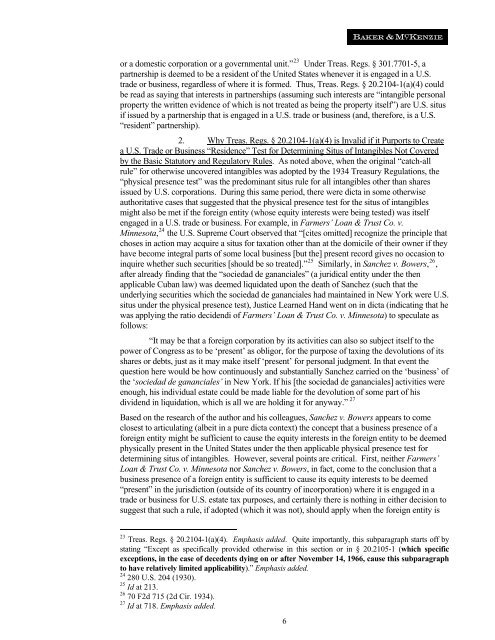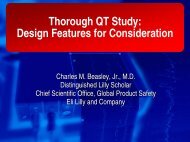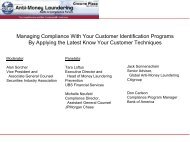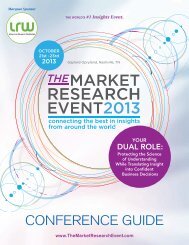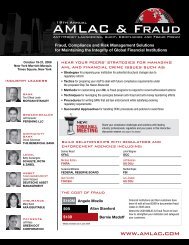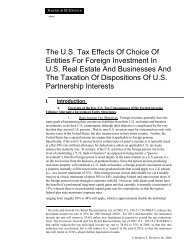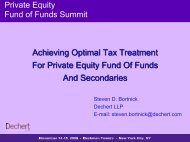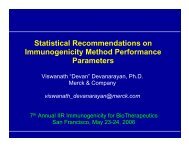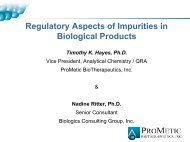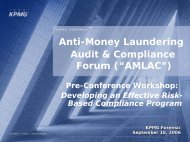The US Tax Effects Of Choice Of Entities For Foreign Investment - IIR
The US Tax Effects Of Choice Of Entities For Foreign Investment - IIR
The US Tax Effects Of Choice Of Entities For Foreign Investment - IIR
You also want an ePaper? Increase the reach of your titles
YUMPU automatically turns print PDFs into web optimized ePapers that Google loves.
or a domestic corporation or a governmental unit.” 23 Under Treas. Regs. § 301.7701-5, a<br />
partnership is deemed to be a resident of the United States whenever it is engaged in a U.S.<br />
trade or business, regardless of where it is formed. Thus, Treas. Regs. § 20.2104-1(a)(4) could<br />
be read as saying that interests in partnerships (assuming such interests are “intangible personal<br />
property the written evidence of which is not treated as being the property itself”) are U.S. situs<br />
if issued by a partnership that is engaged in a U.S. trade or business (and, therefore, is a U.S.<br />
“resident” partnership).<br />
2. Why Treas. Regs. § 20.2104-1(a)(4) is Invalid if it Purports to Create<br />
a U.S. Trade or Business “Residence” Test for Determining Situs of Intangibles Not Covered<br />
by the Basic Statutory and Regulatory Rules. As noted above, when the original “catch-all<br />
rule” for otherwise uncovered intangibles was adopted by the 1934 Treasury Regulations, the<br />
“physical presence test” was the predominant situs rule for all intangibles other than shares<br />
issued by U.S. corporations. During this same period, there were dicta in some otherwise<br />
authoritative cases that suggested that the physical presence test for the situs of intangibles<br />
might also be met if the foreign entity (whose equity interests were being tested) was itself<br />
engaged in a U.S. trade or business. <strong>For</strong> example, in Farmers’ Loan & Trust Co. v.<br />
Minnesota, 24 the U.S. Supreme Court observed that “[cites omitted] recognize the principle that<br />
choses in action may acquire a situs for taxation other than at the domicile of their owner if they<br />
have become integral parts of some local business [but the] present record gives no occasion to<br />
inquire whether such securities [should be so treated].” 25 Similarly, in Sanchez v. Bowers, 26 ,<br />
after already finding that the “sociedad de gananciales” (a juridical entity under the then<br />
applicable Cuban law) was deemed liquidated upon the death of Sanchez (such that the<br />
underlying securities which the sociedad de gananciales had maintained in New York were U.S.<br />
situs under the physical presence test), Justice Learned Hand went on in dicta (indicating that he<br />
was applying the ratio decidendi of Farmers’ Loan & Trust Co. v. Minnesota) to speculate as<br />
follows:<br />
“It may be that a foreign corporation by its activities can also so subject itself to the<br />
power of Congress as to be ‘present’ as obligor, for the purpose of taxing the devolutions of its<br />
shares or debts, just as it may make itself ‘present’ for personal judgment. In that event the<br />
question here would be how continuously and substantially Sanchez carried on the ‘business’ of<br />
the ‘sociedad de gananciales’ in New York. If his [the sociedad de gananciales] activities were<br />
enough, his individual estate could be made liable for the devolution of some part of his<br />
dividend in liquidation, which is all we are holding it for anyway.” 27<br />
Based on the research of the author and his colleagues, Sanchez v. Bowers appears to come<br />
closest to articulating (albeit in a pure dicta context) the concept that a business presence of a<br />
foreign entity might be sufficient to cause the equity interests in the foreign entity to be deemed<br />
physically present in the United States under the then applicable physical presence test for<br />
determining situs of intangibles. However, several points are critical. First, neither Farmers’<br />
Loan & Trust Co. v. Minnesota nor Sanchez v. Bowers, in fact, come to the conclusion that a<br />
business presence of a foreign entity is sufficient to cause its equity interests to be deemed<br />
“present” in the jurisdiction (outside of its country of incorporation) where it is engaged in a<br />
trade or business for U.S. estate tax purposes, and certainly there is nothing in either decision to<br />
suggest that such a rule, if adopted (which it was not), should apply when the foreign entity is<br />
23 Treas. Regs. § 20.2104-1(a)(4). Emphasis added. Quite importantly, this subparagraph starts off by<br />
stating “Except as specifically provided otherwise in this section or in § 20.2105-1 (which specific<br />
exceptions, in the case of decedents dying on or after November 14, 1966, cause this subparagraph<br />
to have relatively limited applicability).” Emphasis added.<br />
24 280 U.S. 204 (1930).<br />
25 Id at 213.<br />
26 70 F2d 715 (2d Cir. 1934).<br />
27 Id at 718. Emphasis added.<br />
6


